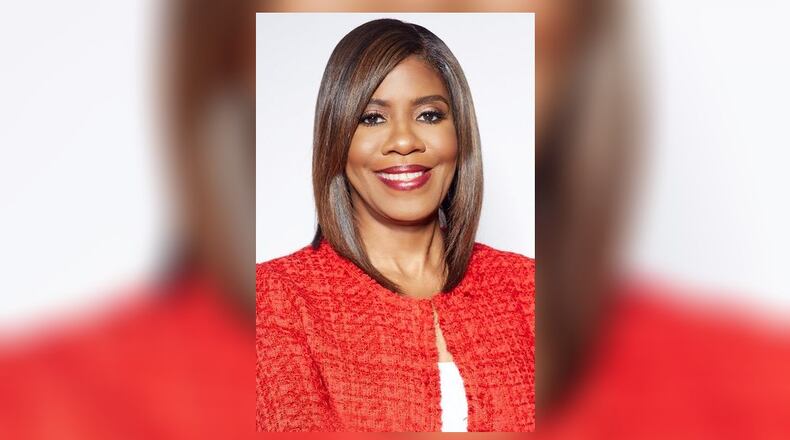The American Medical Association is a powerful force in the lives of American patients, and in two months it plans to install an Atlanta psychiatrist as its president, the first African-American woman to take that position.
Dr. Patrice Harris, a child and adolescent psychiatrist and former director of health services for Fulton County, has made the opioid epidemic and its fallout her recent focus. The Atlanta Journal-Constitution talked to her about that and other subjects.
The answers have been edited for length and clarity.
Q: You are one of three Georgia women about to take the helm of major medical organizations. Dr. Sara Goza of Fayetteville will head the American Academy of Pediatrics starting in January, and Dr. Jacqueline Winfield Fincher of Thomson is president-elect of the American College of Physicians. What do you make of that?
I think this is certainly a huge bragging point for Georgia. We know that the number of women who are in medical schools across this country has been hovering around 50 percent. There’s much more progress to be made regarding women in leadership. So I do think there is an opportunity for people to see me and my two colleagues, as well, to be an inspiration for women in medicine.
Q: There’s a decline in African-American male doctors, just as studies show better health outcomes with them for African-American patients.
We all know there is a critical need to figure out the strategy to increase the number of African-American males for that very reason. Now we want to make sure we emphasize the fact that everyone can take great care of our patients. But it is important sometimes, and patients do better when they are interacting with a physician who looks like them. And oftentimes there may be a shared lived experience that really enhances the physician-patient relationship.
Q: The AJC has reported on issues surrounding the culture of medicine, most significantly with a project on doctors and sex abuse. One of the things we heard was that it makes a difference to have women in positions of authority, on medical boards, in universities, owning practices. What was the landscape like when you first began practicing, and have you noticed any changes?
Overall, the AMA of course has zero tolerance for physician misconduct. The American Medical Association certainly advocates for state medical boards to have all of the funding and the other resources that they need to investigate and take actions on that.
Personally, I grew up in West Virginia and trained in West Virginia. At the time, I was the only African American in all four classes of medical school. And that’s not the only situation where I’ve been the only one. So I know firsthand the responsibility and the privilege of being the first and the only. And, also, I think from a broader standpoint, diversity on boards or any area, organizations perform better when there is diversity of thought and opinion.
Q: What was it like coming up as “the only one”?
It was tough at times. It was helpful for me to meet others. Actually, during medical school I came to Atlanta in 1990 for an SNMA meeting (Student National Medical Association, founded by African-American students). It absolutely was a significant moment for me.
(Television character) Marcus Welby was my role model. I’ve wanted to be a physician since I was in the eighth grade. But no one in my family had gone to medical school, and in fact, I did not meet in person a first African-American woman who was a physician until after my undergraduate years.
Q: The American Medical Association is one of the most influential organizations in lobbying Congress; reports say it spent $20 million at the federal level alone last year. It’s taken stances that have deep importance to Americans, like opposing Medicare back in the ’50s as socialized medicine, though that’s different now. How much power does the president have to shape the organization’s views, and what views do you hope to bring to the table?
The president is the primary spokesperson. So I’ll be responsible for elevating and amplifying the policy put forth by our house of delegates. I plan as a psychiatrist, as a child and adolescent psychiatrist and first African-American woman president, to elevate the importance of mental health, overall health, and the integration of mental health with primary care. And as we’ve already discussed, I plan to amplify the diversity in the physician workforce and health equity.
And, finally, I plan to amplify and continue my work on the opioid crisis. Medication-assisted treatment, or MAT, is evidence-based for the treatment of opioid use disorder. But unfortunately only 2 in 10 patients who want MAT have access to it.
Q: One of the things we’ve found recently is that Georgia’s maternal mortality rate is among the highest in the nation and far worse than most industrialized countries’. How did we get here?
As a psychiatrist I am not an expert in that, but I am aware it’s a huge issue here in Georgia. Part of that issue is making sure that there is access to care. That’s why the AMA continues in the fight to make sure we don’t lose any of the patient protection that we gained under the Affordable Care Act. We know that access to coverage could lead to earlier care and care on the prevention side.
Q: Why did you move to Atlanta?
Atlanta felt like home, candidly. And, of course, Emory was a top-notch training program, which was a first priority. But it didn’t hurt that I already had relatives here. But I loved the weather.
About the Author
The Latest
Featured


